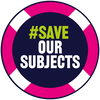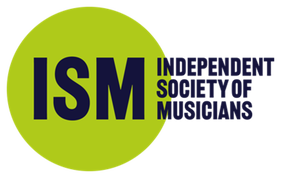BACKGROUND
What is the problem?
- GCSE entries in arts and technology subjects are falling - Between 2010 and 2022 there was a fall of 40% in GCSE entries in creative and technical subjects. Design and technology GCSE alone had 71% fewer entries in 2022 than 2010, while music had a fall of 27%
- There are fewer teachers teaching arts subjects - with a 23% drop in arts teachers between 2010 and 2021, and a 49% drop in design and technology teachers
- 3 in 5 teaching hours in secondary schools are for EBacc subjects - English, maths, the sciences, history or geography and a language, while 82% of teachers believe the accountability system is too concerned with academic achievement
- Funding is low - According to Labour, funding for music, arts and cultural programmes was just £9.40 per pupil in 2021. With a 9% drop in funding per student between 2010 and 2020, state schools have prioritised EBacc subjects, to comply with performance metrics
'Some school leaders confirmed they were reducing their curriculum offer of creative subjects to maximise the potential to gain additional points for qualifications that count towards the "core" Progress 8 subjects.'
Department for Education, 2017
Who is affected by this?
- Pupils in state schools - The state school system has seen a steady decline in arts education, while the private (fee paying) system has seen an increase. This has increased inequality of access to, and the value of, a broad educational experience
- Disadvantaged pupils - Young people in the wealthiest decile are three times more likely to sing in a choir or play in a band or orchestra weekly, while just over 50% play a musical instrument, compared with under a third of those in the most deprived decile
- Black, Asian and ethnically diverse pupils - particularly because of the lack of representation in the curriculum and in arts educators. Only 2% of managers in visual arts organisations identify as BAME
Why do we need the arts?
- The arts develop rounded learners - Arts subjects help students 'look at things from different perspectives, understand the limits of their and others’ views, and help transform their ideas into innovative solutions.’ Making music helps people to make meaning in their lives and to create social connection
- The arts play a major role in the UK economy - In 2019 the creative industries contributed £115.9 billion to the UK and there were over 2.1 million people employed in the creative industries
- The arts impact positively on health, wellbeing and social cohesion and are a source of cultural value and diplomatic soft power
- Employers need workers with creative skills - In 2019 business leaders stated that we need 'a curriculum that instead of narrowing horizons, broadens them, and fosters skills such as creativity, resilience, communication, and problem-solving.'
How does this relate to Progress 8?
Progress 8 is an accountability measure for state secondary schools in England, which was introduced in 2016.
2. Three other EBacc subjects chosen from the sciences, geography, history or a language
3. Three ‘other’ subjects, including EBacc subjects. (English can only be double weighted in bucket 1 if both language and literature are taken, one of which will sit in this bucket)
This leaves potentially just two slots for non-EBacc subjects
- It was designed (in part) to broaden the focus of accountability and the curriculum but also to encourage uptake of EBacc subjects
- It gives a measure of pupils’ progress in three ‘buckets’ of subjects:
2. Three other EBacc subjects chosen from the sciences, geography, history or a language
3. Three ‘other’ subjects, including EBacc subjects. (English can only be double weighted in bucket 1 if both language and literature are taken, one of which will sit in this bucket)
This leaves potentially just two slots for non-EBacc subjects
- Following the introduction of Progress 8, GCSE entries in EBacc subjects grew strongly from 71.4% in 2015 to 81.4% in 2019, with a decline in arts and technology subjects
What are we calling for?
We are asking government to:
- Review the impact of accountability measures (the EBacc and Progress 8) on arts and technology subjects
- Reform the Progress 8 accountability measure, giving pupils more freedom of choice at GCSE
- Deliver the Arts Premium promised in the Conservatives’ 2019 election manifesto
Read the full report: 'Why it's time to reform Progress 8' |
|
|



